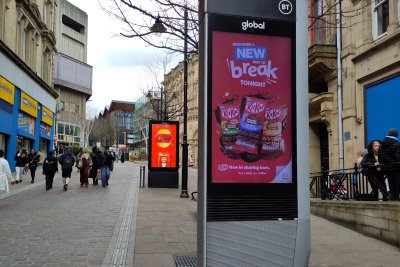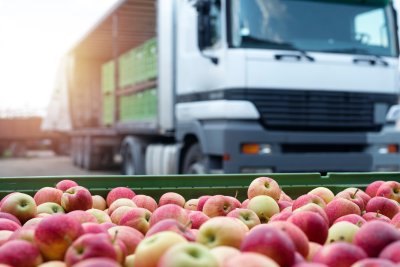 Swindon Town centre. Credit: Swindon Council
Swindon Town centre. Credit: Swindon Council
Swindon Council introduces a healthier food advertising policy
Swindon Council becomes the second in the South West to switch the spotlight away from unhealthy food as leaders sign off on a healthier food advertising policy
Swindon Council signed off on a robust policy to restrict unhealthy food and drinks adverts in their local area. The measures have been introduced to improve public health across the city.
Swindon Council is the fifteenth local authority to bring in a Healthier Food Advertising Policy, after the Mayor of London, with support from Sustain, first brought in the policy across the Transport for London network in 2019. Swindon is the second local authority in the South West of England to do so after Bristol successfully signed off on a policy in 2021.
Fran Bernhardt, Sustain's Commercial Determinants Coordinator said:
Congratulations to Swindon Council. It's fantastic to see them champion children's health by switching the spotlight to healthier foods and drinks across the city.
There are now fifteen English Councils, plus the Transport for London network, which hold these robust advertising policies designed by Sustain. Close to 150 more have approached us for support to bring in a Healthier Food Advertising Policy - which is almost 40% of the UK! So Swindon Council is part of a growing movement of Councils.
Evidence shows that putting the spotlight on unhealthy food makes people eat more of it, leading to worse health. We also know that companies target low income areas, resulting in those people being more likely to experience poor health. Additionally, many of the restricted products are unsustainable, containing climate damaging ingredients, such as sugar, cocoa and palm oil, as well as requiring lots of energy to process them.
We hope the terrific news from Swindon will inspire even more Councils to take this important step for their residents’ health. We call on the national government to restrict unhealthy food and drinks advertising from all sites including outdoor and radio, as well as delivering on their commitments to introduce a watershed on TV and online so we can take unhealthy food out of the spotlight.
Swindon's Director of Public Health, Professor Steve Maddern said:
The issue of childhood obesity presents a significant challenge for Swindon. We recognize it as an issue deeply embedded within the fabric of our daily lives. As part of our Whole Systems Approach to Healthy Weight strategy, there is a clear focus on improving the food environment. This includes restricting the advertisement of high-fat, sugar, and salt food and drink.
The evidence is clear: advertising exerts a significant influence on our dietary choices. Furthermore, inequalities exist based on income and location, factors that can significantly increase exposure to these unhealthy food and drink advertisements. Our council-controlled advertising infrastructure presents a key opportunity to positively influence the food environment. This initiative aligns seamlessly with our broader commitment to supporting families in accessing healthy, nutritious food.
Background
Evidence from the London School of Hygiene and Tropical Medicine’s evaluation of the Transport for London policy has shown that the restrictions led to a 20% reduction in sugary products, and a 1000 calorie decrease per week per household from unhealthy foods and drinks. Further modelling research from the University of Sheffield has estimated that across London, the restriction will lead to 95,000 fewer cases of obesity, 3000 fewer cases of diabetes and 2000 fewer cases of heart disease and save the NHS £218 million over the lifetime of the current population.
Transport for London also announced that its advertising revenues have been unaffected by the restrictions since implementation in 2019. In the first year of the policy, revenues went up by £2.3 million, and in the second year (2020-21), despite financial losses due to Covid lockdowns at the time, the restrictions enabled the advertising figures to be maintained.
While local authorities are taking action, national government has stalled on anti-obesity measures. In 2020, the Government announced plans to restrict unhealthy food adverts, including a total online and 9pm TV watershed as a key part of the government's obesity strategy. These were due to be implemented in January 2023. However, in December 2022 the national Government delayed these to October 2025 - a delay that pushes them back three years after the date they originally committed to. This comes after the Obesity Health Alliance’s research found that 8 out of 10 adults support the Government restricting unhealthy food advertising to children on TV (79%) and online (81%).
If your local authority is interested in introducing a healthier food advertising policy, check out Sustain's toolkit for local authorities.
Commercial Determinants: Supporting policymakers and councils to introduce healthy food advertising policies.
Sustain
The Green House
244-254 Cambridge Heath Road
London E2 9DA
020 3559 6777
sustain@sustainweb.org
Sustain advocates food and agriculture policies and practices that enhance the health and welfare of people and animals, improve the working and living environment, promote equity and enrich society and culture.
© Sustain 2025
Registered charity (no. 1018643)
Data privacy & cookies
Icons by Icons8







